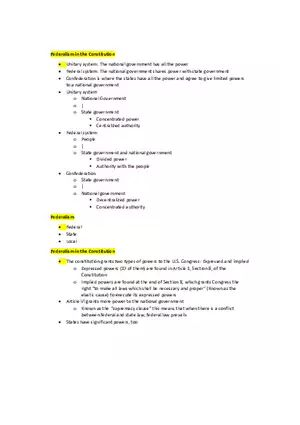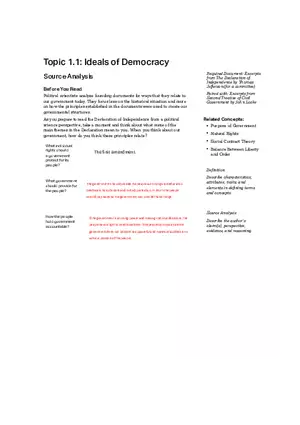Answer Key
Government Answer Note #1
-
University:
California State University, Fresno -
Course:
PLSI 2 | American Government and Institutions Academic year:
2021
-
Views:
397
Pages:
1
Author:
Mia Hobbs
Report
Tell us what’s wrong with it:
Thanks, got it!
We will moderate it soon!
Report
Tell us what’s wrong with it:
Free up your schedule!
Our EduBirdie Experts Are Here for You 24/7! Just fill out a form and let us know how we can assist you.
Take 5 seconds to unlock
Enter your email below and get instant access to your document













